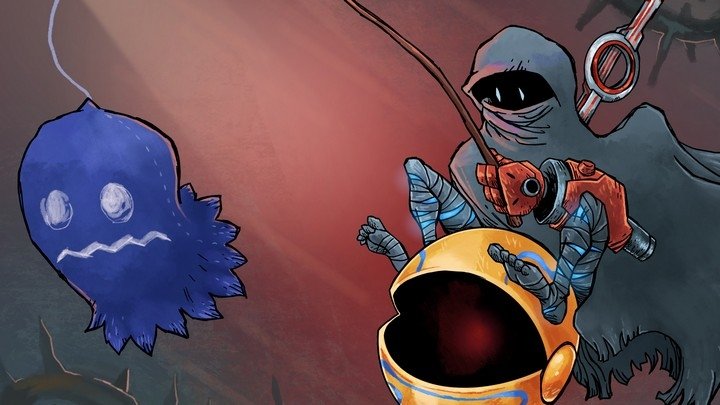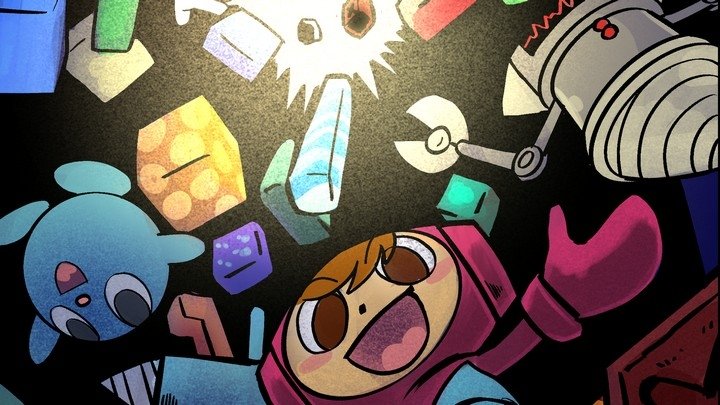Two decades later, we all still inhabit The Matrix
It's a 90s time capsule that has shaped both movies and games for twenty years.
Today in the year 2019, as I sit in a house where every device I own is perpetually online via a wireless connection to a global network of computers, it is with no small amount of amazement that I recall a night twenty years ago when two friends and I went to see an odd-looking sci-fi movie that would cast a long shadow over the entire cinematic and technological landscape as we know it. On March 31, 1999, The Matrix premiered in theaters across the United States and we've been living under its influence ever since.
That The Matrix ever made it to the big screen at all is something of a miracle. Co-writers/co-directors/co-siblings Lana and Lilly Wachowski were hardly household names having released only one other film at the time, an erotic neo-noir film called Bound in 1996. Most audiences came to learn about The Matrix thanks to a commercial during Super Bowl XXXIII which highlighted star Keanu Reeves and lots of action but didn't have time for the film's philosophical angle. As a wannabe-film-snob I recognized the film's Hong Kong influences right away (John Woo had guys in long trenchcoats shooting guns at each other back in the 80s), but I still had no idea what the movie would be about until I was sitting in the theater seeing it for myself.
I mention John Woo not to dismiss The Matrix as imitative but to acknowledge the film's incorporation of disparate influences such as Hong Kong cinema, Japanese anime, and various philosophical and religious concepts from around the world. The Matrix also bears a less heady but no less apparent superficial resemblance to many contemporary action and sci-fi films of the late 90s such as Dark City and Blade (corporate siblings released by New Line, a subsidiary of Warner). But Dark City and Blade did not make $400 million dollars; The Matrix did, and as a result it gets most of the credit for the wave of slo-mo, black-leather action films that would follow in its wake.
It cannot be overstated how much The Matrix was a product of its time, particularly when it comes to the then-nascent Internet. By 1999 it was clear that the so-called information superhighway wasn't just a fad and the World Wide Web was catching on with mainstream consumers. Early Hollywood attempts at technological thrillers were dated by the time they hit theaters; The Net, Hackers, and Johnny Mnemonic (all 1995!) presented computers and the Internet as magic gateways with CGI-portals which bore no resemblance to any Internet that has ever existed. The original Mission: Impossible (1996) sees Tom Cruise send dozens of emails to "Max @ Job 3:14" But that scene where Neo is sleeping next to his desktop computer as it runs a web search of news articles about Morpheus? That's what the Internet actually looked like in 1999.
Tracing the impact of The Matrix on the media landscape is like trying to estimate Mario's influence on the world of video games: they both changed everything to the point that we're still reckoning with the fallout today. The success (and the look) of The Matrix had an immediate impact on X-Men which began filming in late 1999 and hit theaters in 2000, which in turn had an impact on Spider-Man (2002) which in turn lead us to our current cinematic universe where superheroes continue to headline multiple blockbusters a year - though thankfully, they are allowed to be colorful again (unless Zack Snyder is involved).
Beyond the cinema, The Matrix had an indirect but no less lasting impact on the world of video games - and I don't mean Enter the Matrix. In the year 2000, DVDs were still an up-and-coming format; dedicated players were costly and many film studios had yet to embrace them. But in 2000, the PlayStation 2 launched worldwide and it was the only video game console that played DVDs right out of the box. Consequently, one of the console's biggest sellers - both in the US and Japan - was The Matrix on DVD. Sony execs, in turn, leaned into that association when they hyped the PS2's internet connectivity. Ken Kutaragi told Newsweek as much in 2000: "This will be the ideal home server. Did you see the movie The Matrix? Same interface. Same concept. Starting from next year, you can jack into The Matrix!"
Remember when I said The Matrix was a product of its time? Inside of a year, the film's title had become synonymous with the Internet itself.
Meanwhile, here in 2019, I rewatched The Matrix tonight and I was pleasantly surprised with its staying power. 90s CGI is notorious for ageing as well as 90s milk, but The Matrix uses computer effects sparingly, relying more on traditional stunt work to keep the action moving. Fight scenes are long and you can really see the actors working their hardest to sell the premise of leather-clad cyber-terrorists who all decided the best way to fight a revolution against sentient machines was to learn martial arts.
(That said, if you had asked me in 1999 which film series I would be most eager for Keanu Reeves to revisit in twenty years, I never would have picked Bill & Ted's Excellent Adventure over The Matrix, but here we are)
Twenty years later, The Matrix stands alone as the best video game movie ever made despite not being an adaptation of any video game. Instead, every character in the film has to come to terms with a virtual world separate from the real world where their physical attributes and traits don't matter, a world where a pasty software hacker can become a (figurative) superman by mastering a computer program. At this point in my life I'm too old to learn kung fu in either world but The Matrix still brings out the 90s kid in me, the one who thought Chow Yun-Fat was the coolest man alive and that video games would only get better and better with each passing year.
At least one of those statements is true today.




